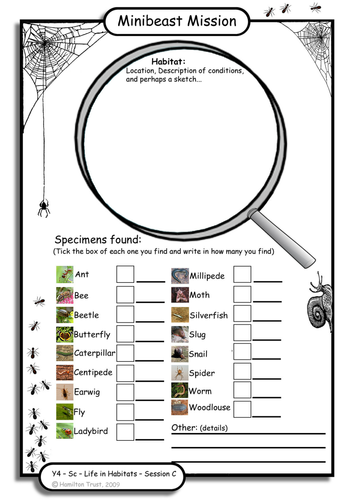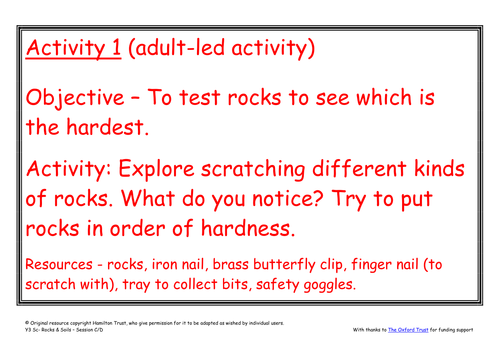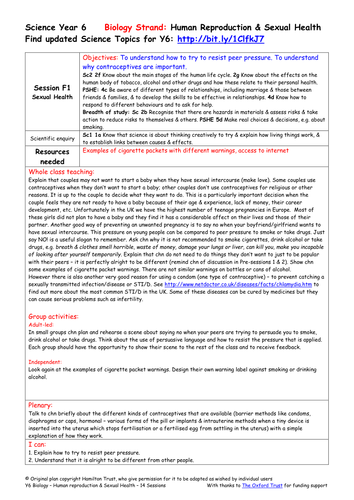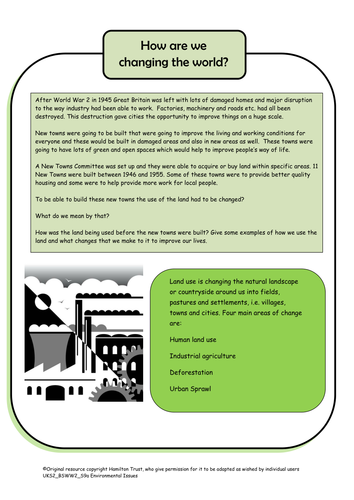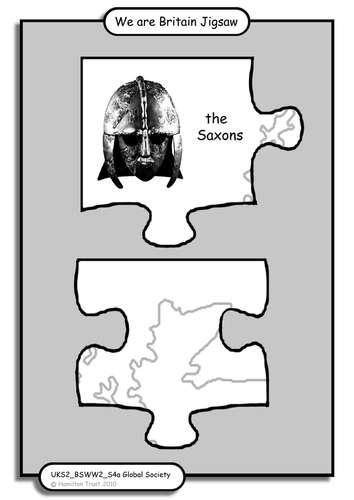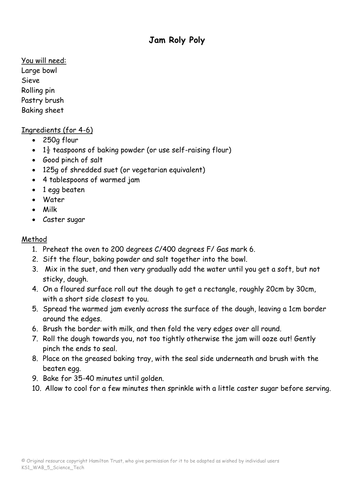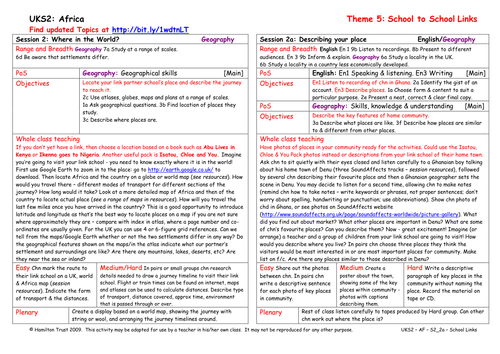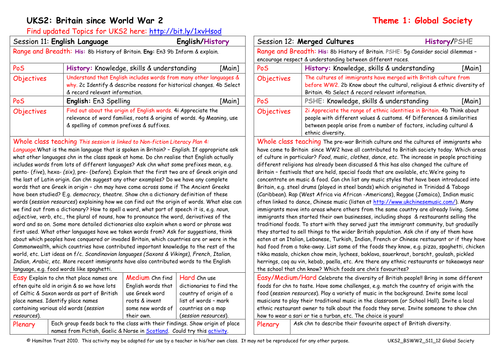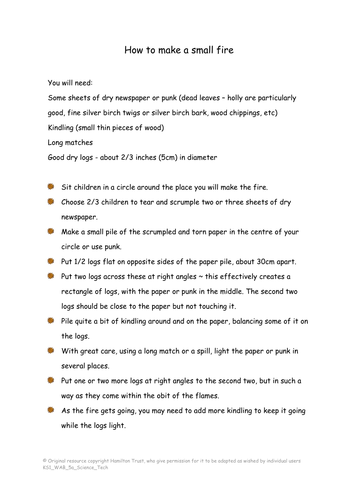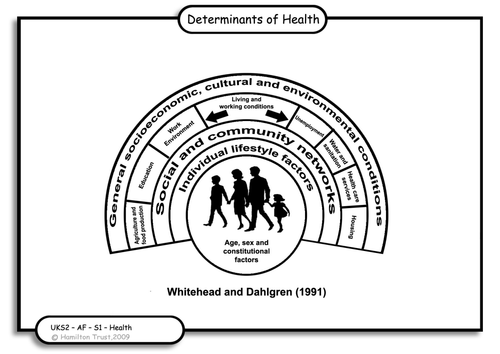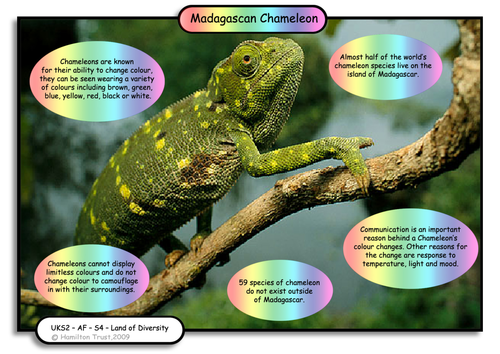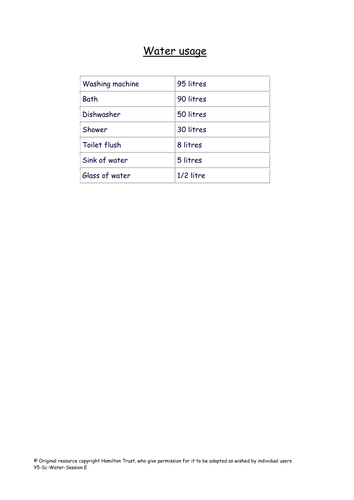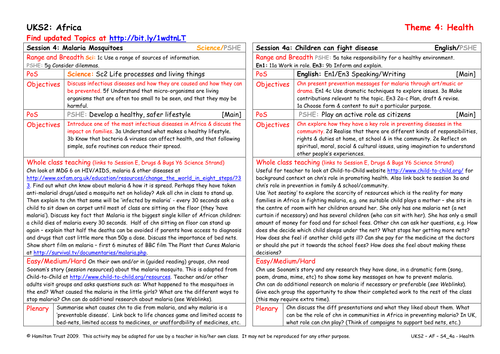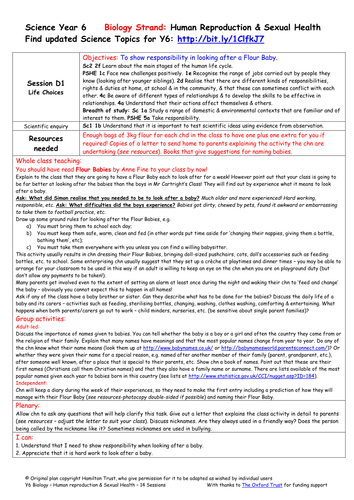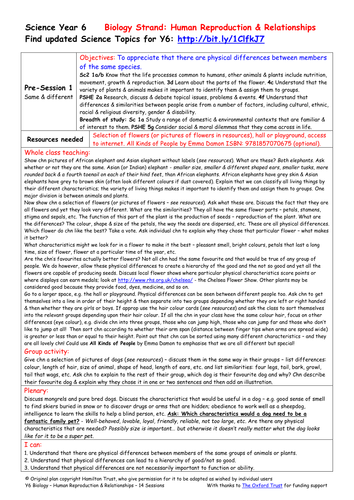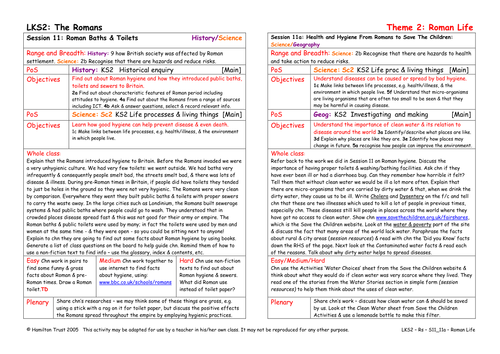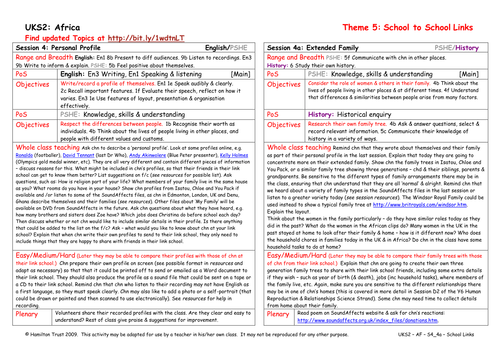
397Uploads
10040k+Views
11644k+Downloads
Cross-curricular topics

Field trip!
Organise a field trip in the school grounds, in the local environment or further afield. Children observe and/or collect minibeasts and record them and any evidence (including plants) to indicate why the habitat is suitable for those organisms.
Suitable for Year 4 pupils.

Explore rocks further
Take part in more practical workshop activities including separating sand and stones by sieving, using ICT to research rocks, looking up vocabulary in dictionaries, sorting and naming rocks and testing the effect of vinegar on rocks.
Suitable for Y3 pupils.

Sexual health
Session 1 - Have discussion about contraceptives as a way of preventing an unwanted pregnancy, but also explain that they can help protect against sexually transmitted infections and diseases. Use drama to practise saying no to peer pressure for smoking, alcohol or drugs. Children design warning labels.
Session 2 - Discuss one sexually transmitted disease / infection in more detail – HIV / Aids. Ensure children understand difference between having the virus and the syndrome. Watch a video by children living with an HIV mother and discuss stigma involved with HIV / Aids. Look at statistics and discuss Memory Books and World Aids Day.
Suitable for Y6 pupils.

How Are We Changing The World?
Children consider ways in which we use the land and how it has changed since WW2. The four main ways are human land use, industrial agriculture, deforestation and urban sprawl.
Children help decide the future of the imaginary Grousebrook Valley in the Peak District NP.

Jigsaw
Ensure that children understand that all the people who have come to live here since Roman times have made an impact on Britain. Children research one country that people have immigrated from and add a picture and label to a large class version of the jigsaw.

Cooking A 1950's Meal
Children have the opportunity to cook one course of a typical 1950s meal or to set the table. Discuss safety measures before children cook the shepherds’ pie, rice pudding or sponge pudding and custard. Will everyone have a taste of all three dishes?

Describing Your Place
Listen carefully to some children in Ghana describing their home town or use descriptions from your link school friends of their town. Imagine the teacher and some children from your link school are going to visit your town! Describe the places they should visit.
Suitable for years 5 and 6.

English Language
The English language contains words from many different languages. Children investigate old Saxon and Celtic words used in British place names, Greek prefixes and word roots that are used in English words and words that have been introduced from other languages.

Cooking Food on an Open Fire
Immediately after the war many people cooked on open fires using wood, which was cheap or easy to gather free. Cook some potatoes on an open fire outside for children to taste with butter or cheese. If possible allow children to toast some marshmallows with adults.

Life Chances
Use the life chances game to explore how your chances of being healthy and living a long life, depend upon where you live in the world. A focus on Africa.
Suitable for years 5 and 6.

Madagascan Chameleon
Using Madagascan Chameleons as a model, show children how they can focus upon particularly interesting aspects of their chosen creature. They will need to write an explanation of this feature. Model this using the chameleon’s camouflage.
Suitable for years 5 and 6.

Water in everyday life
Remind children how important water is to all living organisms. Look at how little of the water present on earth is fresh and therefore drinkable.
Children investigate how animals and plants adapt to arid conditions and create posters to encourage us to save water.
Suitable for Y5 pupils.

School's Out!
What do children do when they are not in the classroom? At playtimes, evenings and weekends? Discuss sport, games and hobbies. Write instructions for a playtime game or making a craft object to send to their link school friends. Try an African game or craft.
Suitable for years 5 and 6.

Children Can Fight Diseases
Children present through poetry, role play, song or dance, an action that can be taken to prevent malaria.
Suitable for years 5 and 6.

Life choices
Session 1 - Think about all the different relationships that children have/will have with other people, leading to a discussion about marriage. Research marriage customs in different cultures. Children return to timelines and predict hopes and expectations for their future lives.
Session 2 - Think about all the different relationships that children have / will have with other people, leading to a discussion about marriage. Research marriage customs in different cultures. Children return to timelines and predict hopes and expectations for their future lives.
Suitable for Y6 pupils.

Same and different
The first two sessions are an introduction to the Strand.
Session 1 - Help children appreciate that there are many physical differences between plants and animals (including humans) that are not necessarily good or bad nor important to function or ability.
Session 2 - Look in more detail at differences between people living in Britain. Discuss our multi-cultural society. Share poems in We are Britain by Benjamin Zephaniah to inspire children to write poems about themselves. Can children recognise their own Wanted poster?
Suitable for Y6 pupils.

From Romans To Save The Children
Children continue work on health and hygiene in relation to clean water and the diseases caused/transmitted by dirty water. Using the Save the Children website, children discover the ways in which this issue is being tackled in different parts of the world.
Suitable for years 3 and 4.

Effects of Human Land Use
Children read the description of a fictional tourist town, they consider the way the town is dependent upon the tourist industry that surrounds the Coral Lake.
A proposed new bylaw aims to change things – what effects will this have? Children hold a town meeting.

Extended Family
Now children are going to expand the information about themselves to include their family. They draw family trees. Discuss the role of women – do children’s mothers have the same role as their grandmothers or earlier generations? What about the African women?
Suitable for years 5 and 6.

